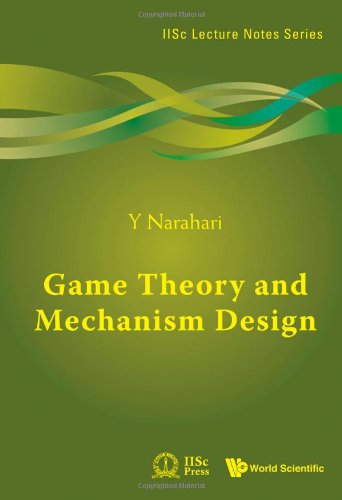

Most ebook files are in PDF format, so you can easily read them using various software such as Foxit Reader or directly on the Google Chrome browser.
Some ebook files are released by publishers in other formats such as .awz, .mobi, .epub, .fb2, etc. You may need to install specific software to read these formats on mobile/PC, such as Calibre.
Please read the tutorial at this link: https://ebookbell.com/faq
We offer FREE conversion to the popular formats you request; however, this may take some time. Therefore, right after payment, please email us, and we will try to provide the service as quickly as possible.
For some exceptional file formats or broken links (if any), please refrain from opening any disputes. Instead, email us first, and we will try to assist within a maximum of 6 hours.
EbookBell Team

4.4
72 reviewsThe importance of the discipline of game theory has been recognized through numerous Nobel prizes in economic sciences being awarded to game theorists, including the 2005, 2007, and 2012 prizes. The book distills the marvelous contributions of these and other celebrated game theorists and presents it in a way that can be easily understood even by senior undergraduate students.
A unique feature of the book is its detailed coverage of mechanism design which is the art of designing a game among strategic agents so that a social goal is realized in an equilibrium of the induced game. Another feature is a large number of illustrative examples that are representative of both classical and modern applications of game theory and mechanism design. The book also includes informative biographical sketches of game theory legends, and is specially customized to a general engineering audience.
After a thorough reading of this book, readers would be able to apply game theory and mechanism design in a principled and mature way to solve relevant problems in computer science (esp, artificial intelligence/machine learning), computer engineering, operations research, industrial engineering and microeconomics.
Readership: Researchers, academics, postgraduate students in AI/machine learning, computer engineering, operations research, industrial engineering and microeconomics.